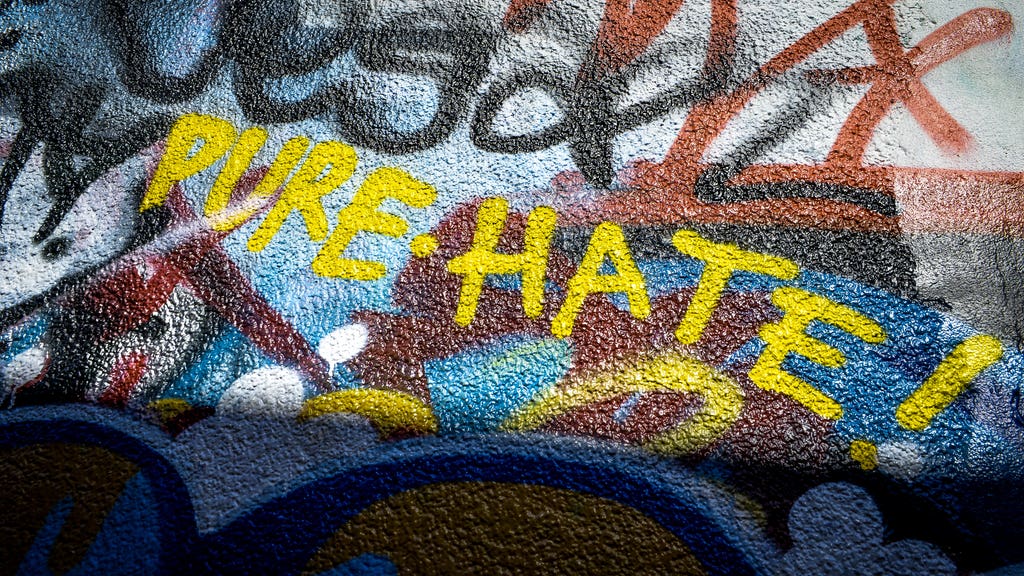Anti-Asian hate speech surged by 1,662% during the pandemic, study finds
Many of the racist slurs aimed at people of Asian ethnicity during the pandemic did not even exist two years, researchers say

Your support helps us to tell the story
From reproductive rights to climate change to Big Tech, The Independent is on the ground when the story is developing. Whether it's investigating the financials of Elon Musk's pro-Trump PAC or producing our latest documentary, 'The A Word', which shines a light on the American women fighting for reproductive rights, we know how important it is to parse out the facts from the messaging.
At such a critical moment in US history, we need reporters on the ground. Your donation allows us to keep sending journalists to speak to both sides of the story.
The Independent is trusted by Americans across the entire political spectrum. And unlike many other quality news outlets, we choose not to lock Americans out of our reporting and analysis with paywalls. We believe quality journalism should be available to everyone, paid for by those who can afford it.
Your support makes all the difference.Anti-Asian hate speech increased by 1,662 per cent in 2020 compared to 2019 in the UK, a new report examining how racism online changed during the pandemic has revealed.
There were 23 million references to violent threats, many aimed at people of Asian ethnicity, in the UK and US between 2019 and mid-2021, the research found.
The study, by leading youth charity Ditch the Label, was published on Monday to mark the beginning of Anti-Bullying Week. It analysed 263 million online conversations between 2019 and mid- 2021, when there was a new online post about race or ethnicity-based hate speech every 1.7 seconds on average.
Police data has previously shown a surge in hate crimes against Chinese people in the UK during the coronvirus pandemic.
The rise anti-Asian abuse following the Covid outbreak came amid rising racism spurred in response to Black Lives Matter protests in the wake of George Floyd’s murder, as well as recurring discussions about immigration and Brexit across the UK in the past four years.
Liam Hackett, chief executive of Ditch the Label said: “This report shines a vital and sobering light on the very real and devastating experiences of millions worldwide, as they battle not only their own personal struggles, but navigate through alarming rates of online toxicity and abuse. It is clear that online hate speech has reached an all-time high and, to some communities, is at an unbearable extreme.
“By far, the most alarming data surrounds abuse directed towards marginalised communities, with a deep intensity surrounding racism and Asian hate.
“It is my hope that this vital piece of research will illuminate the true extent of online hate and progress to positively influence societal behaviours and policy to better protect people online.”

The charity partnered with Brandwatch, a digital consumer intelligence company, to analyse public online conversations about hate speech leading up to and since the pandemic began.
Many of racis slurs now levied at Asian people both online and in person did not exist two years ago prior to the Covid pandemic, the study found.
Gemma Joyce, content director at Brandwatch, described the abuse documented in this research as “horrifying” and warned the situation was “getting worse”.
“It’s horrifying to see so many examples and reports of hate speech on the internet but heartening to see that people are coming forward to share their experiences,” she said.
“Many won’t be surprised to see the high volume of discussion around online hate, especially since the pandemic began.
“By quantifying it broadly, we hope to help raise awareness of the problem to support those advocating against it, to show those affected that they’re not alone, and to educate those who don’t see hateful content in their timelines.”
Ms Joyce added: “Online hate is real, it’s hurting people, and it’s been getting worse.”
Join our commenting forum
Join thought-provoking conversations, follow other Independent readers and see their replies
Comments